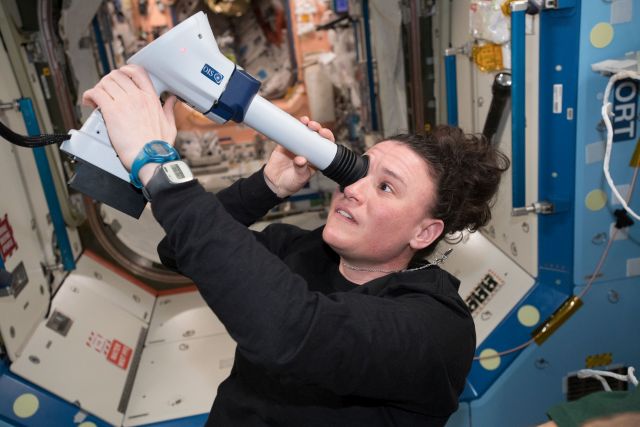
According to NASA, as of March 2022, 75 women have flown in space, including the first American woman in space, Sally Ride, who flew aboard the space shuttle on the STS-7 mission in June of 1983. Decades later, NASA astronaut Anne McClain became the first woman to live aboard the space station among other space travelers, including Serena Auñón-Chancellor in 2018.
Serena M. Auñón-Chancellor began working with NASA as a flight surgeon in 2006. She is certified in aerospace medicine and has handled medical issues for the commercial crew and International Space Station medical operations for Space Station crew members in Russia’s Star City. She served as deputy crew surgeon for Nasa Space Shuttle Mission STS-127.
Auñón-Chancellor was selected in July 2009 as one of fourteen of the twentieth NASA astronaut class members. She graduated in November 2011 from astronaut candidate training, which included spacewalks, robotics, and two months in Antarctica searching for meteorites. Most of that time was spent living on the ice 200 nautical miles from the South Pole.
After graduating from high school in Fort Collins, Colorado in 1993, Auñón-Chancellor earned a Bachelor of Science in Electrical Engineering from The George Washington University in 1997 and a Doctorate of Medicine from The University of Texas – Health Science Center at Houston in 2001.
She also completed a three-year residency in internal medicine at The University of Texas Medical Branch (UTMB) in Galveston, Texas, in 2004 and then completed an additional year as Chief Resident in the Internal Medicine Department in 2005. She completed an aerospace medicine residency at UTMB and a Master of Public Health in 2007.
In 2018, Auñón-Chancellor was a member of Expedition 56. Aboard the International Space Station, she studied the effects of microgravity on the body.
After six months in space, the effects on eyesight are often permanent. Auñón-Chancellor’s crewmates Ricky Arnold and Alex Gerst also worked to help doctors understand what happens to human eyes in the weightless microgravity environment.
The U.S. Army Corps of Engineers has been tasked with…
Brown and Caldwell, a leading environmental engineering and construction firm,…
Humboldt State University, one of four campuses within the California…